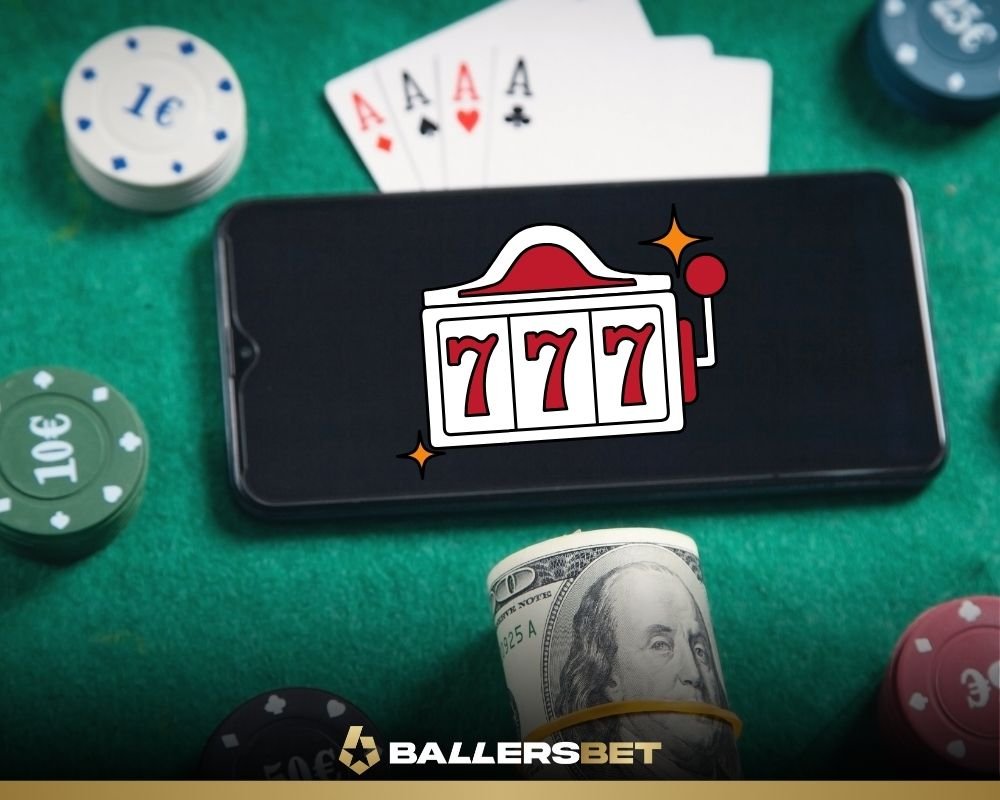Can someone else claim my casino winnings? No—only the winner can claim the prize. Casinos have strict verification processes in place to make sure can someone else claim my casino winnings is not an issue.
This article will go into those processes, the legal steps involved and what to do if your claim is disputed.
We’ll also cover identification requirements, the challenges and legalities of claiming a jackpot and tax and legal implications.
Key Points
- Only the person who wins a casino prize can legally claim it, with strict verification processes in place to stop fraudulent claims.
- Casinos require valid ID and Social Security Number for tax purposes to ensure winnings are reported accurately and legally.
- Trying to claim someone else’s winnings, especially a big jackpot, can result in serious legal consequences, including fraud charges, so make sure to only claim what’s yours.
Who Can Legally Claim Casino Winnings?

Only the person who wins the prize can claim it legally so the right person gets what’s theirs and prevents fraudulent claims. Most casinos have strict policies on slot machine winnings, especially when it comes to a big jackpot for unattended winning tickets or vouchers.
These policies involve detailed verification processes to protect the player and the establishment. The prize must be claimed by the person who won it.
Casino security is important in verifying claims. They use video surveillance and transaction monitoring to identify the winner, to safeguard the integrity of the gaming experience and player trust.
👉 Read More: 5 Top Best Blackjack Betting Strategies to Win More
Verification Process for Claiming Winnings
Verification prevents fraud. This process protects the casino’s interest and the winner’s rights to ensure a fair gaming environment, especially when it comes to big winnings like a jackpot.
Verification involves submitting necessary ID documents to prove the claimant’s identity and entitlement. The process is thorough and often includes advanced surveillance technology like facial recognition and high-resolution cameras to monitor for suspicious behavior.
Let’s break down the identification requirements and tax implications in the next sections.
Identification Requirements
Claiming big gambling winnings especially from a big jackpot requires valid ID, such as driver’s license, passport or state-issued ID to confirm the player’s identity.
In some cases, casinos may also ask for additional documents like utility bills or bank statements to confirm the claimant’s address. Valid ID prevents fraud and ensures the winnings go to the right person, protecting the casino and the player and creating a secure gaming environment.
Proper ID prevents disputes and ensures the person claiming the winnings is indeed the real winner.
Social Security Number and Tax Implications
Casinos request social security numbers to comply with IRS regulations and report gambling winnings (jackpot) for tax purposes. This is for federal income tax withholding on winnings above a certain threshold.
According to the IRS, gambling winnings are considered taxable income and must be reported whether a tax form is issued or not.
All gambling winnings must be declared as income on tax returns whether reported to the IRS or not. The IRS doesn’t allow taxpayers to pay taxes on their gambling expenses from their winnings when computing taxable income.
Gambling losses can only be deducted up to the amount of gambling winnings claimed when itemizing deductions so tax obligations are met and compliant with federal regulations.
Common Reasons for Denial of Casino Winnings
Casinos may deny payout requests for many reasons mostly ID related. Mismatched names or documentation errors require the casino to deny the payout to comply with legal regulations so only the right winner gets the winnings.
This is more crucial when it comes to big jackpot as the stakes are higher and the legal implications are bigger. If a player can’t provide the right ID, casinos will deny the payout.
Other reasons for denial are unresolved legal disputes related to gambling activities. Casinos may impose internal penalties like banning individuals who try to claim winnings that aren’t theirs to maintain the integrity of operations and prevent fraud.
Banned Players and Unresolved Issues
A banned player is not eligible to claim any winnings, including a jackpot earned during the period they were banned, a precautionary measure to prevent future issues and uphold the casino’s rules.
Players banned due to previous misbehavior may have their winnings forfeited and prohibited from future participation in casino games.
Resolving the status of banned players is tricky and they may have difficulty claiming their winnings without an explanation.
This creates a complex situation where the player must navigate the casino’s policies and procedures to address their ban and any unresolved issues.
Suspected Fraud and Security Measures
Casinos take suspected fraud very seriously and have measures in place to detect and address it. Fraud detection tools include monitoring win rates and tracking player behavior through advanced systems designed to identify unusual patterns that may indicate fraudulent activities, especially when it comes to big jackpot.
Casinos have security personnel and software plus surveillance cameras to combat fraud. This combo of technology and human oversight ensures fraudulent activity is detected and addressed quickly to maintain casino operations.
Legal Consequences of Claiming Someone Else’s Winnings
Trying to claim another person’s casino winnings (especially a jackpot) can lead to criminal charges, fraud and theft, which are considered serious crimes under theft laws. The penalties can be severe, fines and imprisonment depending on the gravity of the offense.
A fraud conviction in a gaming house can result in a permanent criminal record which can affect future employment opportunities. This is why it’s important to claim only rightfully earned winnings and follow the casino and legal rules.
Child Support and Other Debts
If a person wins gambling money and has outstanding child support, their winnings may be garnished before they get the cash. State regulations allow the casino to intercept winnings to settle child support arrears so child support obligations are met before the winner gets the prize.
In some cases, a court may impute income from gambling wins even if the winner hasn’t received the full amount yet. Gambling wins can impact financial obligations and must be considered when dealing with debts and legal responsibilities.
Taxes on Casino Winnings
Players may receive a Form W-2G if their winnings exceed certain thresholds which vary depending on the game or wager. This form is for reporting gambling wins to the IRS and compliance. Gambling wins are considered income when computing child support obligations and may result in payment modifications if the win is a significant change in income.
Accurate reporting of gambling wins to the IRS is important for tax compliance. This includes all types of wins whether from slots, table games or big jackpots. Proper reporting ensures the winner meets their tax obligations and avoids legal issues.
👉 Know More: Benefits of Cryptocurrency Online Casinos
What to Do If Your Winnings Are Disputed?
To resolve a dispute with a casino, contact their customer support first, provide necessary documents and evidence especially if it’s a big jackpot.
This allows the gambling house to review the case and make a decision. If unresolved, escalate the matter to higher management in the casino. External authorities can help in dispute resolution, especially if there’s a breach of casino’s policies or laws.
Keep records of all communication and evidence related to the dispute for future escalation or legal processes so all necessary information is available to support your claim.
FAQs about Can Someone Else Claim Your Casino Winnings
Here are the answers to the most frequently asked questions.
1. What happens if I cash out more than $10,000 at a casino?
Cashing out more than $10,000 at a casino especially when claiming a big jackpot will trigger a Currency Transaction Report (CTR) which the casino has to file with the Financial Crimes Enforcement Network. This is for compliance with large cash transaction regulations.
2. Can someone else claim my casino winnings?
Only the winner can claim casino wins. So someone else can’t claim your wins.
3. What ID do I need to claim my winnings?
To claim your wins, you need to present valid ID which can be a driver’s license, passport or state issued ID. Make sure the ID is current and properly issued.
4. What if I have unpaid child support?
If you have unpaid child support, your wins may be garnished before you get the cash to settle the arrears. Address unpaid payments promptly to avoid further financial penalties.
5. Are gambling wins taxable?
Gambling wins are taxable income and must be reported to the IRS. Include these wins in your tax filing.
Summary
Claiming casino winnings involves understanding who can claim them, the verification process, reasons for denial and legal consequences of claiming someone else’s jackpot. Proper ID and tax compliance are key in this process. Child support and other debts can also impact enjoying gambling wins.
Be aware of these factors and know how to resolve disputes to have a smoother experience when claiming your wins. Remember, the key to a successful claim is following the casino and legal rules.
Note: Ballersbet is a betting platform for users 18+. Betting carries financial risk, so please gamble responsibly and make informed choices.

I’m a Michele, Casino Analyst and Reviewer at Ballersbet.com, where I specialize in providing honest insights and expert reviews of the latest casino games and platforms. With a passion for online gaming and a commitment to transparency, I strive to help players make informed decisions in the ever-evolving world of online casinos.






